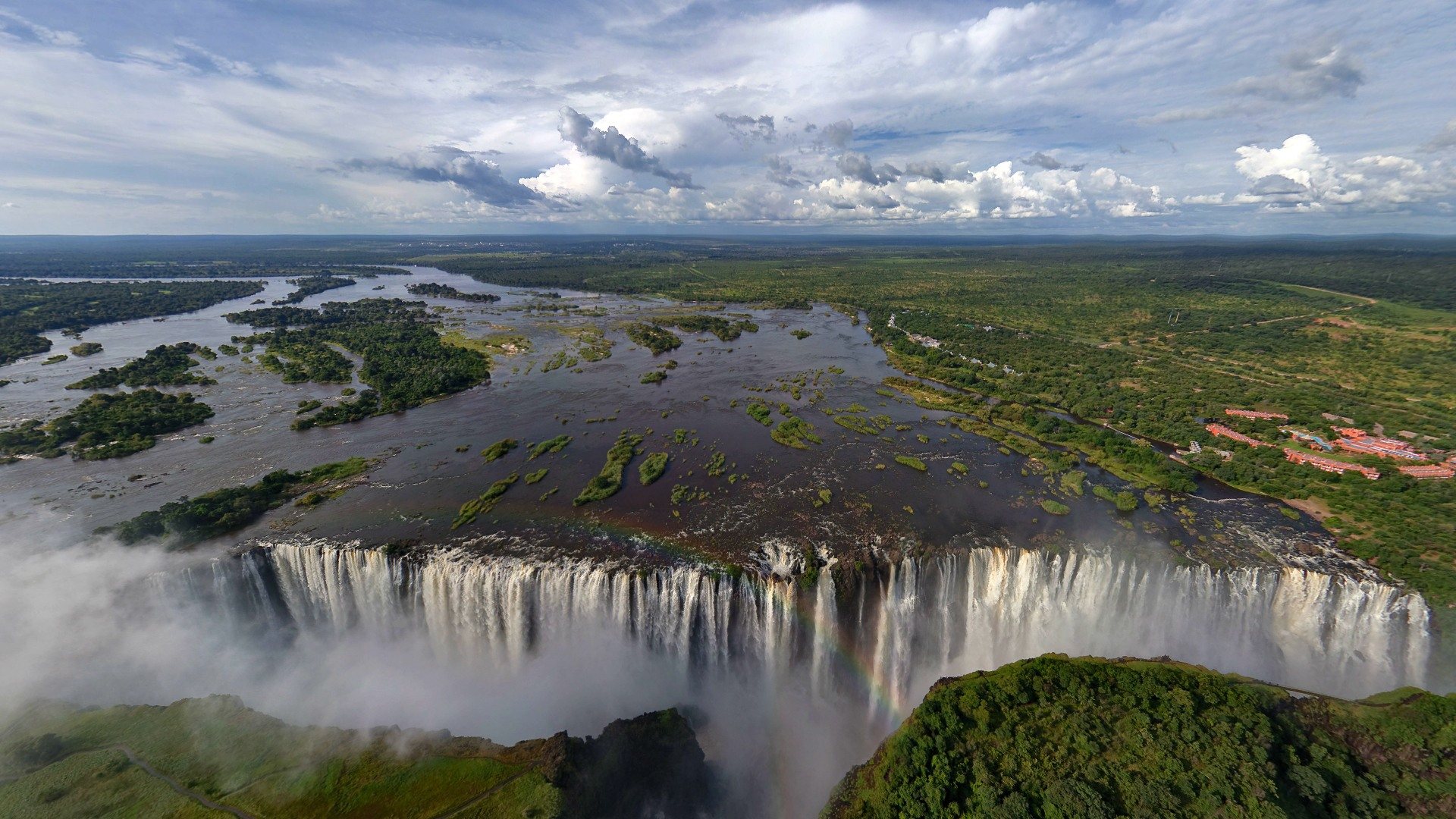Welcome to Facts Vibes! Get ready to dive into the extraordinary world of nature with our article on Victoria Falls Waterfall Facts. Discover the mesmerizing beauty and fascinating details of one of the most awe-inspiring natural wonders on earth. Let’s explore the marvels of Victoria Falls together!
The Magnificent Victoria Falls: A Natural Wonder Revealed
The Magnificent Victoria Falls is truly a natural wonder that captivates visitors from around the world. Located on the border of Zambia and Zimbabwe in Africa, this stunning waterfall is one of the largest and most powerful in the world. The sheer force and beauty of the falls make it an awe-inspiring sight to behold.
The Victoria Falls stretch across a width of over 1,700 meters and drop to a depth of more than 100 meters, creating a mesmerizing display of cascading water. The resulting mist and spray give rise to rainbows, adding to the enchanting atmosphere.
Visitors can experience the falls from various vantage points, each offering a unique perspective of this natural wonder. Whether taking a helicopter ride for a bird’s-eye view or walking along the rainforest trails, the sheer scale and power of the falls leave an indelible impression on all who witness them.
In addition to its natural splendor, the surrounding area offers a range of activities, from adrenaline-pumping adventures like white-water rafting and bungee jumping to leisurely sunset cruises on the Zambezi River. The town of Livingstone in Zambia and Victoria Falls in Zimbabwe serve as gateways to this remarkable destination, providing a range of accommodations and amenities for travelers.
It’s no wonder that the Magnificent Victoria Falls continues to be a cherished natural wonder, drawing in visitors year after year to marvel at its grandeur and power.
Most popular facts
Victoria Falls is one of the largest waterfalls in the world, with a width of 1,708 meters (5,604 feet).
Victoria Falls is one of the largest waterfalls in the world, with a width of 1,708 meters (5,604 feet).
It is located on the border between Zambia and Zimbabwe in southern Africa.
Victoria Falls is located on the border between Zambia and Zimbabwe in southern Africa.
The local name for Victoria Falls is “Mosi-oa-Tunya,” which means “The Smoke That Thunders.”
The local name for Victoria Falls is “Mosi-oa-Tunya,” which means “The Smoke That Thunders.”
The waterfall was named in honor of Queen Victoria of the United Kingdom by the explorer David Livingstone.
The waterfall was named in honor of Queen Victoria of the United Kingdom by the explorer David Livingstone.
During the wet season, over 500 million liters of water flow over the edge of the falls every minute.
During the wet season, over 500 million liters of water flow over the edge of the falls every minute.
The mist from Victoria Falls can be seen from up to 50 kilometers (31 miles) away.
Yes, the mist from Victoria Falls can be seen from up to 50 kilometers (31 miles) away.
The falls are part of the Zambezi River, which is the fourth-longest river in Africa.
The falls are part of the Zambezi River, which is the fourth-longest river in Africa.
Victoria Falls is a UNESCO World Heritage Site and a popular tourist attraction.
Victoria Falls is a UNESCO World Heritage Site and a popular tourist attraction.
The Devil’s Pool, a natural rock pool on the edge of the falls, allows visitors to swim at the very brink of the waterfall during the dry season.
The Devil’s Pool is a natural rock pool on the edge of the falls, allowing visitors to swim at the very brink of the waterfall during the dry season.
The Victoria Falls Bridge, built in 1905, spans the Zambezi River just below the falls and is a popular spot for bungee jumping.
The Victoria Falls Bridge, built in 1905, spans the Zambezi River just below the falls and is a popular spot for bungee jumping.
The indigenous people of the area, the Toka-Leya, believed that the falls were a sacred place of the gods.
The indigenous people of the area, the Toka-Leya, believed that the falls were a sacred place of the gods.
The geologic formation of Victoria Falls dates back millions of years, and the basalt cliffs have been gradually eroded by the Zambezi River.
The geologic formation of Victoria Falls dates back millions of years, and the basalt cliffs have been gradually eroded by the Zambezi River.
The first European to see Victoria Falls was David Livingstone in 1855, and he famously described the sight as “scenes so lovely must have been gazed upon by angels in their flight.”
The first European to see Victoria Falls was David Livingstone in 1855, and he famously described the sight as “scenes so lovely must have been gazed upon by angels in their flight.“
In addition to its natural beauty, Victoria Falls is home to a diverse array of wildlife, including elephants, hippos, and crocodiles.
Victoria Falls is home to a diverse array of wildlife, including elephants, hippos, and crocodiles.
The town of Victoria Falls, located on the Zimbabwean side of the falls, is a popular hub for tourists visiting the area.
Victoria Falls, located on the Zimbabwean side of the falls, is a popular hub for tourists visiting the area.
In conclusion, Victoria Falls is a magnificent natural wonder that never fails to awe visitors with its sheer beauty and power. Its impressive size and rich history make it a truly iconic destination for adventurers and nature enthusiasts alike. Whether you’re captivated by its thundering roar or its breathtaking scenery, Victoria Falls undoubtedly stands as a testament to the raw majesty of nature.
